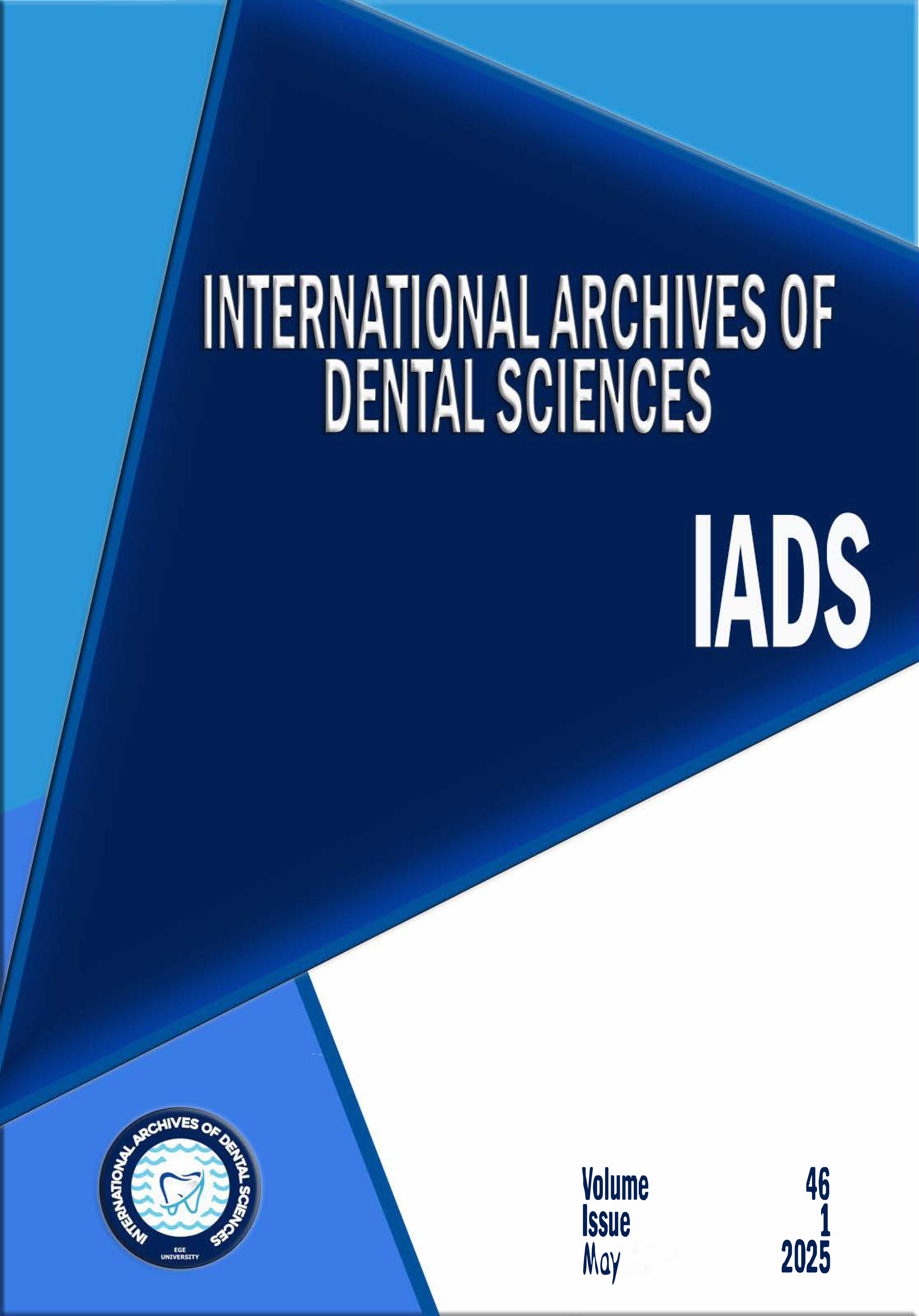
Bu eser Creative Commons Alıntı-GayriTicari-Türetilemez 4.0 Uluslararası Lisansı ile lisanslanmıştır.


Parental Attitudes and Experiences of Dental Care in Children and Adolescents with Attention Deficit Hyperactivity Disorder
Aysun Avşar1, Işıl Karahasanoğlu1, Seher Akbaş21Ondokuz Mayıs Univercity, Faculty of Dentistry, Department of Pediatric Dentistry, Samsun2Ondokuz Mayıs Univercity, Faculty of Medicine, Department of Pediatrics, Samsun
INTRODUCTION: The aim of this study to analyze the behaviour and attitude of parents towards dental treatment, oral hygiene and dietary habits of their children with ADHD.
METHODS: 145 children diagnosed with ADHD according to DSM-IV and their parents were included in this study. The parents were asked to fill out a questionnaire about education level, dental experiences, oral hygiene practices and the dietary habits of their children, oral hygiene practices and dental experiences. The results were analyzed with Spearman rank correlation test statistically.
RESULTS: It was found that 29% of the children had dental treatment, 38% of which were done under general anesthesia. 62% of the parents were under the impression that general dentist did not have enough knowledge about ADHD. 42% of the parents were aware of tooth decay factors and 20% of them knew about preventative methods. There was a positive correlation between the DMFT values of the children and their parents while a significant negative correlation was observed between the education level and DMFT values versus frequency of dental visits.
DISCUSSION AND CONCLUSION: Dentist and psychiatric should cooperate as soon as the child is diagnosed with ADHD and the parents should be informed about the oral hygiene and dietary habits.
Dikkat Eksikliği Hiperaktivite Bozuklugu Olan Çocukların Ailelerin Ağız Diş Sağlığı Hakkındaki Tutum ve Bilgileri
Aysun Avşar1, Işıl Karahasanoğlu1, Seher Akbaş21Ondokuz Mayıs Üniversitesi, Diş Hekimliği Fakültesi, Pedodonti Ana Bilim Dalı, Samsun2Ondokuz Mayıs Üniversitesi, Tıp Fakültesi, Pediatri Ana Bilim Dalı, Samsun
GİRİŞ ve AMAÇ: Çalışmanın amacı Dikkat Eksikliği Hiperaktivite Bozukluğu (DEHB) görülen çocukların dental tedavi, oral hijyen ve diyet alışkanlıkları konusunda ebeveynlerinin tutum ve davranışlarını analiz etmektir.
YÖNTEM ve GEREÇLER: Çalışmaya Diagnostic and Statistical Manual of Mental Disorders, Fourth Edition (DSM-IV)’e göre DEHB tanısı alan 145 çocuk ve ebeveyni dahil edilmiştir. Dental muayeneden önce ebeveynlere eğitim düzeyini, dental tecrübesi, oral hijyen pratiği ve çocuklarının diyet alışkanlıkları, oral hijyen uygulamaları ve dental deneyimlerini içeren sorular içeren anket formları doldurtulmuştur. Sonuçlar istatistiksel olarak Spearman korelasyon testi ile değerlendirilmiştir.
BULGULAR: Çocukların % 29’u dental tedavi görmüş ve bu tedavilerin %38’i genel anestezi altında yapılmıştır. Ebeveynlerinin %62’si genel diş hekiminin DEHB hakkında yeterli bilgi sahibi olmadığını düşünmektedir. Ebeveynlerin %42’sinin çürük etkenleri, %20’sinin koruyucu yöntemler hakkında bilgi sahibi olduğu belirlenmiştir. Ebeveynlerin ortalama DMFT değerleri ile çocuklarının dmft değerleri arasında önemli derecede pozitif korelasyon gözlenirken, eğitim düzeyi, DMFT değeri ve diş hekimine gitme sıklığı arasında önemli derecede negatif korelasyon saptanmıştır.
TARTIŞMA ve SONUÇ: DEHB tanısı konulduğu andan itibaren dental tedavi sırasında hekim, çocuk ve ebeveyn açısından zorluk yaşanmaması için diş hekimi ve çocuk psikiyatristleri birlikte ortak çalışmalı, ebeveynler oral hijyen ve diyet alışkanlıkları hakkında detaylı şekilde bilgilendirilmelidir.
Manuscript Language: Turkish


